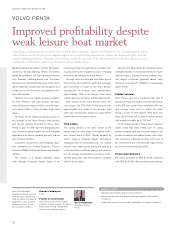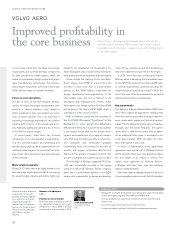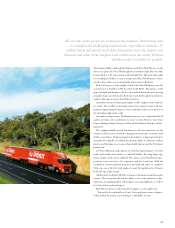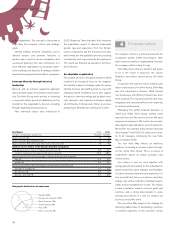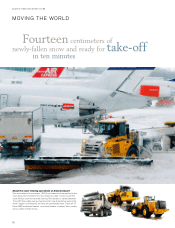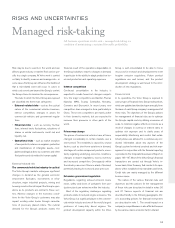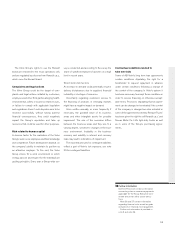Volvo 2010 Annual Report Download - page 49
Download and view the complete annual report
Please find page 49 of the 2010 Volvo annual report below. You can navigate through the pages in the report by either clicking on the pages listed below, or by using the keyword search tool below to find specific information within the annual report.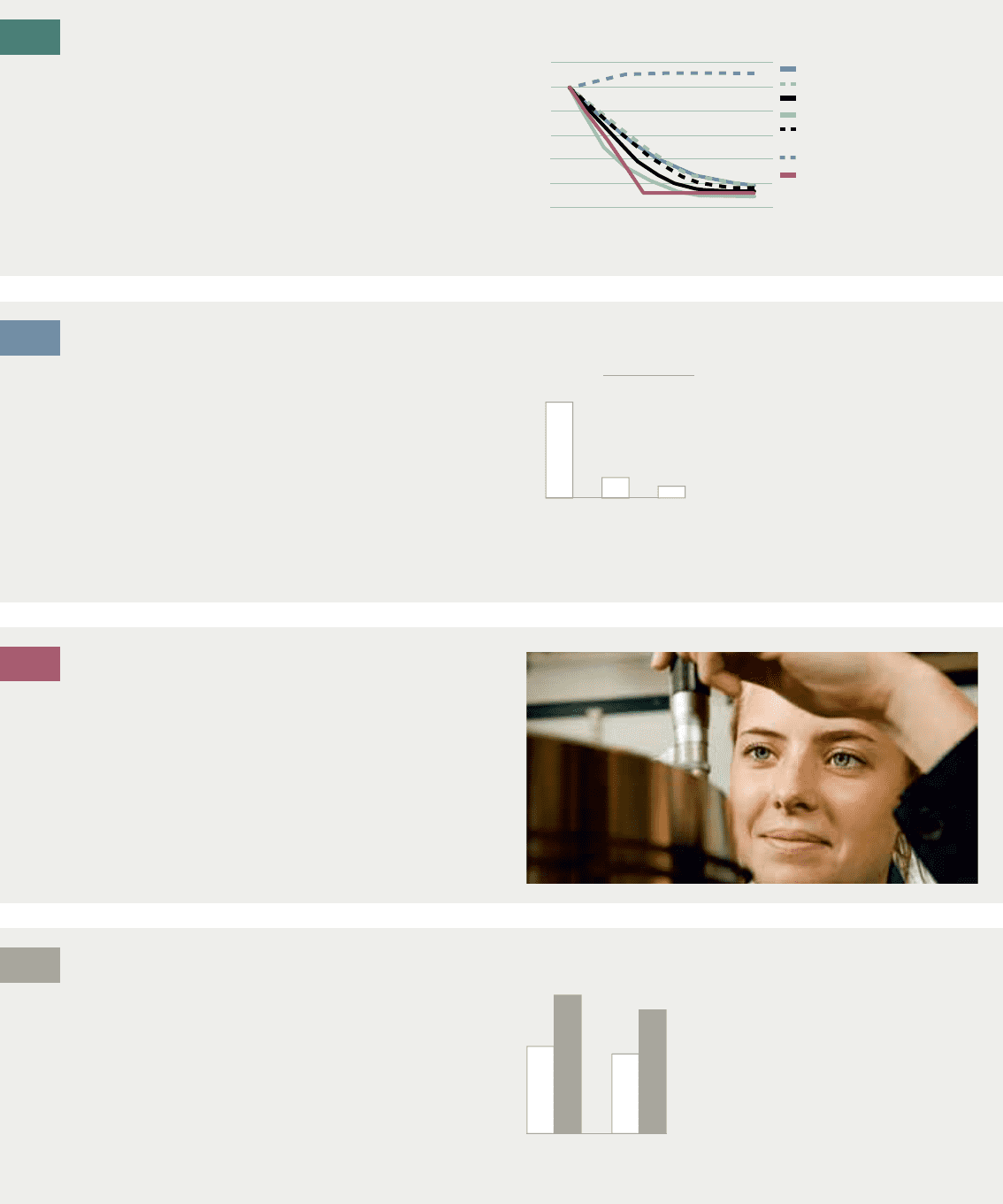
2000
0
20
60
40
80
120
100
Within the EU all road transport emissions except for CO2 are expected
to decrease in the future. This is the result of stringent emission regulations.
1995 2005
Particulate matter (PM)
from diesels
Sulphur dioxide SO2
Solvents (VOCs)
Carbon dioxide (CO2 )
Carbon monoxide (CO)
Nitrogen oxides (NOX)
Benzene
2010 2015 2020
Source: ACEA – European
Automobile Manufacturers'
Association.
Road transport emissions in the EU
1 Products’ environmental impact
fuel costs represent approximately one third of costs for a transport company.
More than 95% of the energy consumption in the transport sector is oil-based.
The supply of easily accessible and cheap crude oil is diminishing, which will lead
to higher fuel prices. In 2013, the Euro VI emission legislation will come into
force, entailing that emission of NOx and particles will decrease to very low levels.
In several parts of the world, carbon-dioxide legislation for heavy vehicles is
being prepared. The Volvo Group continued to invest in the development of envir-
onmentally adapted, efficient products, even during the financial crisis from
which we are now exiting.
2 Responsible sourcing
The Volvo Group has a significant impact on the societies in which we operate. The
companies in the Group are major employers and also generate employment oppor-
tunities for many suppliers. The Volvo Group endeavors to conduct responsible
enterprise based on the Group’s Code of Conduct, its core values and other estab-
lished guidelines. In terms of the environment, responsibility for social and business
ethics is integrated in the operations and the Group aims to apply these policies with
its business partners. This is a part of the risk management process and a way for
the Group to reduce the impact on the environment, while contributing to a positive
social development.
3 A high-performing organization
Increased global presence, new products, introduction of new technology, demo-
graphic changes and more rapid fluctuations in the global economy will lead to
challenges in the supply of expertise and resources, as well as increased focus
on the organization’s ability to adapt to changing market conditions. It will also
place high demand on the Group to generate commitment and motivate employ-
ees to develop and propel the implementation of the Group’s strategy. These
factors entail risks as well as opportunities.
Active work with company culture
4 Company culture
The company’s culture is a critical prerequisite for sustainable growth. Unlike
technologies, strategies, business concepts or organizational structures, culture
is a unique asset. In the document Volvo Way we described our corporate culture
for the first time in 1999. Volvo Way describes our values and how the employees
may contribute to generating added value for customers and shareholders.
10041004
Informed Discussed
86%55%95%68%
95% of responding leaders have informed
their team about updated content in The
Volvo Way (2004: 68%)
86% of respondents has discussed how The
Volvo Way principles should influence the
team’s daily work (2004: 55%)
Volvo Group expect its suppliers to be
compliant with the Group's CSR
requirements. The requirements are an
integrated part of the Group's sourcing
process. Potential and existing suppliers
are monitored from a CSR perspective
to increase the awareness and to follow
up on compliance. 15 months after the
launch of the program almost every
fourth supplier has been monitored and
of these 59% are compliant with Group
requirements. The most common reason
for non-compliance is that suppliers did
not pass the requirements further on in
the supply chain.
6,868 1,519 899
Number of
suppliers, total
Number of replies
TotalCSR
approved
45



